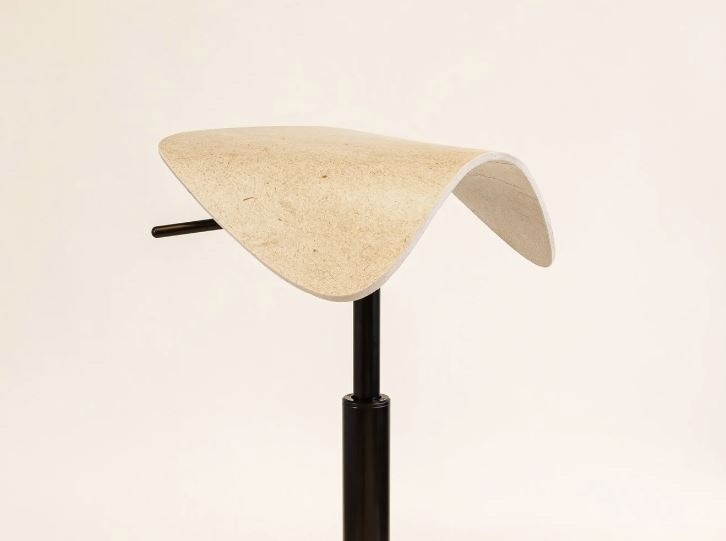The VTT Technical Research Centre of Finland and ISKU, a well-known furniture company in Finland, have developed a new chair type that demonstrates the possibilities of biocomposite materials. Natural annual fibers, polypropylene, and wood pulp from Finnish forests are the primary materials used to make the cellulose-plastic compound used to make the chair. The chair is a sustainable alternative to furniture design, combining wood pulp, thermoplastic components, and natural cellulose fibers in the first innovation in the world to use foam forming technology.
 ISKU VTT demo chair. Image Credit: VTT Technical Research Centre
ISKU VTT demo chair. Image Credit: VTT Technical Research Centre
The Helsinki Expo and Convention Center will host the Pulp & Beyond 2024 Exhibition from April 10–11, 2024, when visitors can try out the new demo chair.
The biocomposite material was produced by VTT using foam forming technology, which was originally developed for papermaking. The process allows for high-volume and cost-efficient production and provides nearly limitless options for product customization. Unlike conventional methods, we maintain the fiber properties and can get full reinforcing potential.
Miika Nikinmaa, Biomaterial Solutions Lead, VTT Technical Research Centre
“Once the process is optimized, we expect to be competitive even with extrusion technologies. In a previously published paper, we estimated that production costs would be 26% lower than with conventional technologies, but these figures will become more accurate as development continues,” Nikinmaa added.
The material has excellent mechanical qualities and can be 3D-molded into complex forms, making it ideal for lightweight constructions. The thermoplastic composite can also be worked with standard woodworking tools, making it an ideal drop-in option for the furniture sector.
A Unique Design with Environmental Benefits
ISKU developed the chair with a sleek and modern look that emphasizes the biocomposite material’s inherent texture and color.
Our aim is not merely to replicate existing products using new materials, but to pioneer innovative solutions that address unique customer needs previously unmet on the market.
Mikko Porter, Head, Lean Six Sigma, ISKU
The chair is sturdy, lightweight, and easy to assemble. The biocomposite material can be recycled at the end of its life cycle, decreasing furniture waste's environmental effect.
A New Opportunity for the Furniture Industry with Many Additional Applications
The biocomposites market is anticipated to reach a value of around 7.6 billion US dollars worldwide. According to BCC Research (2022), the projected average annual growth rate between 2023 and 2027 is 7.6%.
The biocomposite chair is a groundbreaking innovation in the furniture industry. The biocomposite material can be molded into various shapes and forms and blended with other materials such as metal or wood. Other possible applications for the material include packaging, consumer products, and construction. VTT is actively collaborating with partners to develop a robust value chain for commercial exploitation in the next years.
Nikinmaa concluded, “VTT will work with partners to advance the technology and explore ways to bring this exciting technology to market in the future. The material is expected to become available to consumers in the medium to long term.”
The chair is the outcome of a HiPer project funded by Business Finland, which included VTT, ISKU, CH Polymers, Koskisen, Metsä Fibre, NMC Cellfoam, Paptic Ltd, Sulzer, Valmet, and Volar Plastic.